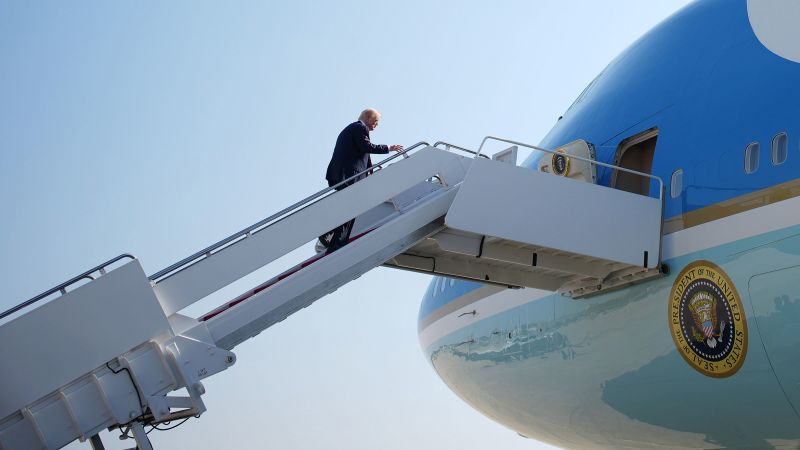In a recent development surrounding aviation and security logistics, President Donald Trump expressed optimism regarding the potential use of a donated Qatari jet as Air Force One. During a press conference in late July 2023, Trump noted that he anticipates having the aircraft operational as early as February 2026. This timeline is considerably ahead of the long-awaited delivery of two newly contracted presidential planes from Boeing. The jets have faced various delays due to extensive required modifications that include safety and security upgrades, which are intrinsic to the operations of Air Force One.
When queried about the timeline for the Qatari jet’s readiness, Trump commented, “They say February,” implying that this would be a “much sooner” option than the Boeing jets currently in the production pipeline. However, this hopeful proclamation contrasts sharply with the skepticism shared by various former Defense officials and aviation experts who question the feasibility of such a rapid turnaround. They argue that upgrading an aircraft originally owned by a foreign government to meet the stringent requirements for use by the President of the United States poses a series of formidable challenges.
Former Assistant Secretary of the Air Force Andrew Hunter highlighted these concerns, stating that the ambitious timeline would likely be “challenging, if not impossible,” without circumventing a range of essential safety protocols associated with such an endeavor. He elaborated that the Qatari jet cannot replicate the capabilities of Air Force One within the proposed time frame unless significant compromises are made concerning safety and operational standards.
Furthermore, the proposal to utilize an aircraft gifted by a foreign nation has not only attracted skepticism but has also ignited ethical and legal debates. Critics have raised concerns regarding the security implications of using a plane that does not originate from the U.S. military and may pose risks if deemed unfit for presidential travel. Trump’s assertion that the Qatari jet would be operationally ready well in advance of its expected timeline for the Boeing jets has received backlash.
In his conversation, Trump maintained an unwavering optimism, reiterating that they would be able to use the Qatari plane a year-and-a-half to two years before the scheduled delivery of the Boeing counterparts. Despite this, it is important to note that the primary contracting jets are currently undergoing substantial renovations in San Antonio, and any deviation from compliance in aircraft modification could exacerbate pre-existing security vulnerabilities.
Interestingly, the situation is compounded by the fact that refurbishments on commercial jets, which typically lack the stringent requirements set for Air Force One, can still take a significant amount of time. Security adaptations needed for the Qatari jet mean its refurbishment process could be far lengthier than usual. Richard Aboulafia, from AeroDynamic Advisory, emphasized that while the jet could technically be ready within the desired timeframe, it would lack the security features essential for presidential travel, potentially exposing Trump to risks.
Significant modifications to ensure airworthiness and compliance with Air Force standards create additional hurdles. Alongside these logistical concerns, the potential costs associated with retrofitting the aircraft have raised eyebrows within Congress. Officially classified figures suggest that renovations could reach hundreds of millions of dollars, though estimates provided by the Air Force Secretary place this cost below $400 million.
Overall, the evolving discourse surrounding the donated Qatari plane serves to illustrate the multifaceted challenges and controversies interwoven with national security, aviation requirements, and ethical considerations inherent in presidential travel. Critics remain cautious as they assess the prospect of a Qatari jet serving as Air Force One while calling for adherence to necessary safety protocols. As modifications progress, stakeholders await clarity regarding compliance with stringent security requirements that underpin U.S. presidential travels. Besides, ongoing discussions involving legislative funding to meet these requirements indicate a contentious intersection of defense, politics, and national interests.











